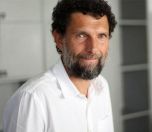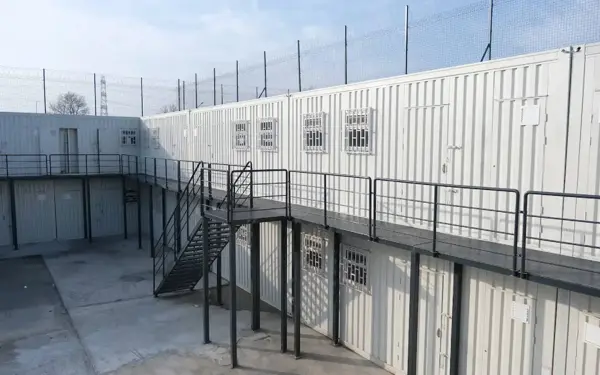Click to read the article in Turkish
Businessperson and rights defender Osman Kavala has been arrested for 1,000 days as of today (July 27). He has been behind bars for almost three years now despite two verdicts of release and one acquittal.
For the last five months, he has been arrested on charge of "espionage" without any indictment filed against him yet.
Speaking at the press conference held on the 998th day of his imprisonment on July 25, Prof. Ayşe Buğra, his wife, said, "This process has now turned into something for us that we can define as torture."
Special days, feasts, birthdays that cannot be celebrated together... Osman Kavala has answered our questions through his attorneys:
'A parallel practice of execution'
Following a ruling of release in Gezi Trial, you were not released based on other investigations. What did you go through between this ruling of release and your rearrest shortly afterwards? What would you like to say about your continued arrest?
Given the restrictions on my right of defense in the previous hearings, I was not expecting a ruling of acquittal in the final hearing of Gezi trial. I had prepared myself for a longer stay in prison. That is why, it was not much of a shock for me that I was detained while I was leaving Silivri Prison Campus. I considered the possibility that I would not be arrested after the interrogation, but it would have been much harder for me if I had been arrested after coming back home, just as it happened to others.
Though they were given in different files, the subsequent rulings of arrest without any intervals in between raise suspicions about a single-handed calculation. It is as if a parallel practice of execution was being carried out independently of the legal contents of ongoing legal proceedings. Members of the judiciary must know how such practices affect human psychology. One cannot possibly fail to see that it is a kind of mental torture.
'Espionage charges were fabricated'
European Court of Human Rights (ECtHR) said you should be "released immediately." But you are still behind bars though there is no ongoing judicial process against you. How do you feel about it?
The ECtHR ruling which concluded that my arrest was a right violation and I should be released immediately was not implemented on procedural pretexts, saying that the ruling was not yet final. However, it was seen that the ruling was based on pretty obvious and indisputable facts.
That the ruling was given unanimously is another indicator of its legal soundness. As I had expected, the ECtHR rejected the government's request that its ruling be examined by the Grand Chamber. It said that there was no need to do this and ended the process of trial.
I think that it is an extremely strong evaluation that needs to be learnt a lesson from. This time, to keep me arrested, a new charge considered to be outside the scope of ECtHR verdict, an espionage charge, was fabricated. One cannot possibly fail to understand that these are all moves to invalidate the verdicts of the European Court of Human Rights.
There can be legal mistakes and violations of rights in every country. The ECtHR was established for that very reason, it has been functioning to remedy such mistakes and violations. A distinguishing feature of being a state of law is to end the unlawfulness in question after a violation of right has been detected and been visible and to take compensatory steps. It is also required by the state's obligation to protect citizens' right to live freely.
In that sense, I think my continued arrest on fabricated charges after ECtHR verdicts and acquittal in Gezi trial is of a much different nature than previous unlawful acts. What is done this time directly targets the verdicts of the judiciary and aims to invalidate these verdicts.
'They believe that my penalization is legitimate'
None of the charges brought against you have been proven. You are the leader of neither a political party nor an organization. Who is attacking you and why?
As is known, in the recent period, especially after the State of Emergency was declared, concrete evidence is not required for arrest; the process of searching for evidence begins after the arrest. It is safe to say that the charge of having links with the organization does not have objective criteria. With the concept of "junction" that they have started to use, almost a coincidental encounter on the street can be considered criminal evidence.
However, the issue about myself is a bit different. Because the allegation made about me is "being the leader of a secret organization that organized the Gezi uprising with the financial support of Soros."
Before I was arrested, the pro-government media outlets made quite a number of news against me. Two weeks before my detention, two long articles were published on a news website called "Yekvücut" owned by the Boğaziçi Global organization. These two articles claimed that the civil society organization activities that I was undertaking served dark purposes. Those who prepared these articles apparently declared me a criminal beforehand and believed that criminal evidence against me could be found if there was a search for it and, therefore, my penalization was legitimate.
As far I can understand from the statements made about me, the reason why President approves my continued stay in prison is his conviction that I am the behind-the-scenes hero of Gezi incidents. What is interesting is this: Those who prepared the fantastic fiction that Gezi was an uprising planned and financed by Soros and staged by my organization were members of the security and judiciary who would be charged with membership of the FETÖ.
While Gezi incidents were still ongoing, Erdoğan, the then Prime Minister, was not using this fiction. He was arguing that the interest rate lobby, which wanted to change the system of high interest rates, was behind Gezi. However, after the coup attempt on July 15, 2016, this discourse has changed. The narrative that foreign powers wanting to overthrow the government were behind Gezi has turned into the official view of the government. Such a depiction of Gezi, seen as a collective movement of opposition against the government, also fits well into the discourse that the political opposition is not local or national. I think my continued stay in prison is regarded as necessary to continue with this Gezi narrative.
'Crimes set based on government's preferences'
Thousands of arrested and convicted people have been released based on Judicial Reform Package and the Law on Criminal Enforcement. But political prisoners are still behind bars. What would you say about the exemption from these laws?
In defining political charges that do not involve violence, Prof. İbrahim Kaboğlu uses the expression of "virtual crimes." In countries where legal norms are not institutionalized and in extraordinary circumstances, the scope of such crimes is determined based on governments' preferences. This space has been expanded in our country with the State of Emergency and what is decisive in judicial proceedings here is not universal legal standards, but political priorities. The legal arrangements made in favor of convicts do not apply to political/virtual crimes for that reason.
'I sometimes see seagulls as well'
What about the prison conditions amid pandemic? Can you compare the period before and after the pandemic broke out? How is your state of health? How do your days pass?
My health is not bad. I take a walk in the yard in the morning and in the evening. While walking, I can also watch the movements in sparrow nests in the upper side of the yard. I can sometimes see seagulls as well. As one can guess, the most important occupation of mine is to read books. Newspapers are delivered, too. I watch the news and some discussion programs in the evening. They screen quality films on [state channel] TRT 2, but as they do not buy new films, I will watch all the films after a while.
The most important change brought about by the pandemic is the restriction on family visits. I can see my wife only once in a month, the monthly open visits are no more. Newspapers are delivered one day later; the delivery of the letters both sent to me and by me also takes long. Apart from that, I did not encounter a shortcoming in meeting basic needs.
'I do not think that it is sustainable'
Do you think that justice will come to Turkey sooner or later?
It will definitely do. It was actually about to come about. There were grave violations of rights or restrictions of freedoms in the judiciary in previous periods as well. However, there used to be a consensus that judicial independence and rule of law were the essential conditions of democracy. Even in the coup period in 1980, the military junta did not attempt to directly interfere in the rulings that it did not approve.
When we came to the 2000s, the main objective was to introduce legislations that will extend the rights and freedoms. The start of accession negotiations with the European Union (EU) also accelerated this process. However, with the Gülenist structure's increasing effectiveness in the security and judiciary, a politically-motivated purge was carried out inside the judiciary and, in parallel to this, a period of using the judiciary for political purposes started.
The State of Emergency declared after the coup attempt on July 15 paved the way for the government to intervene more in the judiciary, thereby making the judiciary dependent on the politics. Therefore, the trust in the judiciary has probably decreased more than it was every before.
I do not think that it is sustainable. Opposition parties, NGOs and professional organizations agree that judicial independence and a compliance of the judiciary with universal norms is a primary goal to ensure democracy and public welfare. All these make me more hopeful that a real reform will be done in the judiciary. (HA/SD)





.jpg)

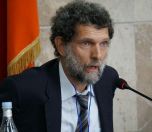
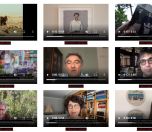
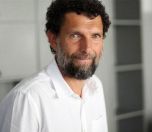

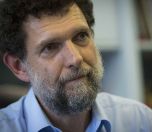

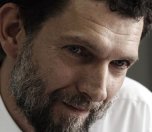
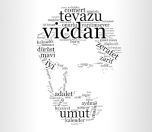
sa.jpg)
